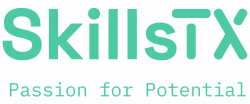Agile methodologies have revolutionized the way organizations approach software development and project management. They promote iterative, collaborative, and adaptive practices that enable companies to respond quickly to changing market demands.
However, successful agile transformation requires more than just implementing new processes; it requires a shift in mindset, culture, and skill sets. This is where the Skills Framework for the Information Age (SFIA) plays a crucial role.
In this blog post, we will explore the relationship between SFIA and agile methodologies and discuss how SFIA can support organizations in adopting agile practices, building agile teams, and developing the necessary skills to thrive in an agile environment.
Understanding Agile Methodologies
Before delving into the relationship between SFIA and agile methodologies, it is important to understand what agile methodologies entail clearly. Agile methodologies, such as Scrum, Kanban, and Lean, are characterized by principles like customer satisfaction, adaptability, frequent delivery, collaboration, and continuous improvement. They prioritize values such as individuals and interactions, working software, customer collaboration, and change response. Key practices include time-boxed iterations, visual workflow management, and waste reduction. The benefits of agility include increased adaptability, faster time to market, improved collaboration, and customer-centricity, leading to successful software development and project management.
The Role of SFIA in Agile Transformation
SFIA provides a comprehensive framework for assessing and developing skills within the digital world. Its focus on competencies and levels of proficiency aligns well with the agile mindset.
- Identifying Agile Skills: SFIA helps identify the specific skills and competencies required for agile practices. It provides a common language and framework for understanding agile roles, such as Scrum Master, Agile Coach, and Product Owner, and the skills needed to excel in these roles.
- Skill Gap Analysis: SFIA enables organizations to conduct skill gap analyses to identify areas where additional training or development is required to support adopting agile practices. It helps align employees’ existing skill sets with the skills needed for successful agile transformation.
- Agile Team Formation: SFIA assists in building agile teams by defining the necessary skills and competencies for different roles within the team. It helps ensure that team members possess the right mix of technical, interpersonal, and leadership skills to collaborate effectively and deliver value in an agile environment.
Developing Agile Skills through SFIA
SFIA guides organizations to develop the necessary skills and competencies to thrive in an agile environment.
- Training and Development Programs: SFIA helps organizations design and implement learning and development programs tailored to the needs of agile teams. It enables the identification of relevant training courses, certifications, and learning opportunities that align with the desired skill sets.
- Performance Management and Career Progression: SFIA provides a structured approach to performance management and career progression in agile methodologies. It helps organizations define clear expectations, set performance objectives, and assess individual performance against agile competencies.
- Agile Coaching and Mentoring: SFIA can be leveraged to support agile coaching and mentoring initiatives. It helps agile coaches and mentors identify areas of improvement and provide targeted guidance to individuals or teams to enhance their agile skills and competencies.
- Recruitment and Talent Management: SFIA assists in recruiting and managing talent for agile teams. It enables organizations to define role profiles, identify required skills and competencies, and effectively align recruitment processes to assess candidates’ agile capabilities.
Overcoming Challenges in Agile Transformation with SFIA
Agile transformation is not without its challenges.
- Cultural Resistance: SFIA provides a structured approach to change management by focusing on skill development. It helps address cultural resistance by shifting the focus from resistance to skill acquisition. By highlighting the skills needed for agile practices and providing a clear roadmap for skill development, SFIA can help employees understand the value and benefits of agile methodologies, reducing resistance and fostering a culture of continuous learning and improvement.
- Skill Alignment: One of the challenges in agile transformation is aligning existing skill sets with the skills required for agile practices. SFIA’s skill mapping capabilities allow organizations to identify gaps between current skills and desired agile competencies. This enables targeted training and development initiatives to bridge the gap and ensure individuals have the necessary skills to contribute effectively to agile teams.
- Team Collaboration: Collaboration is a critical aspect of agile methodologies. SFIA helps organizations build agile teams by defining the required skills and competencies for each role within the team. This ensures that team members possess the necessary skills to collaborate effectively, fostering a culture of teamwork and shared responsibility.
- Skill Development Tracking: Agile transformation is an ongoing journey that requires continuous skill development. SFIA provides a structured approach to track skill development progress. Organizations can use SFIA to monitor individuals’ and teams’ growth, identify improvement areas, and provide targeted support and training as needed.
The relationship between SFIA and agile methodologies is symbiotic, as SFIA provides the framework for assessing and developing the skills required to thrive in an agile environment. By leveraging SFIA, organizations can effectively support their agile transformation journey. SFIA helps identify the skills needed for agile practices, bridges skill gaps through targeted training and development programs and enables organizations to build agile teams with the right competencies. Furthermore, SFIA supports cultural change by shifting the focus from resistance to skill acquisition and fosters a culture of continuous learning and improvement.
SFIA is a valuable resource for organizations embarking on agile transformation. It enables them to navigate the complexities of skill development and provides a roadmap for building agile teams and embracing the principles and practices of agile methodologies. By embracing SFIA, organizations can empower their workforce with the necessary skills to drive successful agile transformations and stay competitive in an ever-evolving business landscape.
You can learn more about SFIA by downloading the FREE SFIA Cheat Sheet from SkillsTX or contacting me directly!
AUTHOR NOTE: Reproduced with thanks to John Kleist III, Chief Growth Officer for SkillsTX and author of Digital Talent Strategies, a popular newsletter on LinkedIn. John proudly considers himself a Talent Management Revolutionary: Spearheading Skills-Based Digital Talent Strategies with SkillsTX Talent eXperience Skills Intelligence and the #SFIA Framework | Unlock Your #PassionForPotential.






